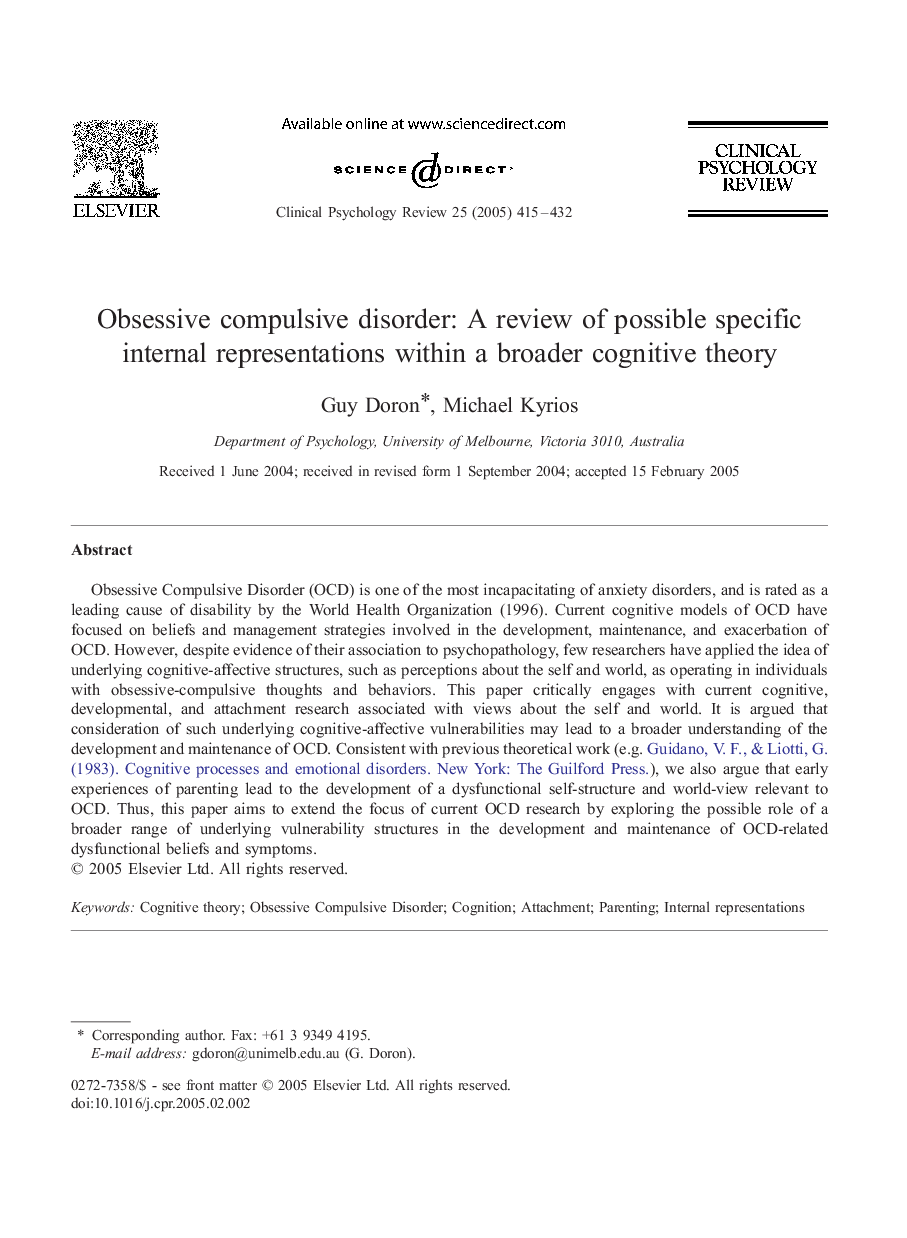| Article ID | Journal | Published Year | Pages | File Type |
|---|---|---|---|---|
| 10445982 | Clinical Psychology Review | 2005 | 18 Pages |
Abstract
Obsessive Compulsive Disorder (OCD) is one of the most incapacitating of anxiety disorders, and is rated as a leading cause of disability by the World Health Organization (1996). Current cognitive models of OCD have focused on beliefs and management strategies involved in the development, maintenance, and exacerbation of OCD. However, despite evidence of their association to psychopathology, few researchers have applied the idea of underlying cognitive-affective structures, such as perceptions about the self and world, as operating in individuals with obsessive-compulsive thoughts and behaviors. This paper critically engages with current cognitive, developmental, and attachment research associated with views about the self and world. It is argued that consideration of such underlying cognitive-affective vulnerabilities may lead to a broader understanding of the development and maintenance of OCD. Consistent with previous theoretical work (e.g. Guidano, V. F., & Liotti, G. (1983). Cognitive processes and emotional disorders. New York: The Guilford Press.), we also argue that early experiences of parenting lead to the development of a dysfunctional self-structure and world-view relevant to OCD. Thus, this paper aims to extend the focus of current OCD research by exploring the possible role of a broader range of underlying vulnerability structures in the development and maintenance of OCD-related dysfunctional beliefs and symptoms.
Keywords
Related Topics
Health Sciences
Medicine and Dentistry
Psychiatry and Mental Health
Authors
Guy Doron, Michael Kyrios,
